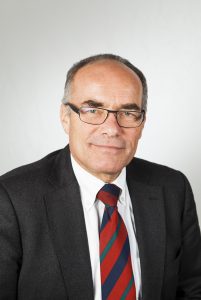Editorial
In 2011 the German Government decided that it would completely phase out nuclear energy use by the end of 2022. Other countries, however, continue to use nuclear power and are even busy building new nuclear power stations. The question of what is to be done with the radioactive waste has only been partly resolved. While a number of countries around the world have found and implemented disposal and permanent storage solutions for dealing with low and intermediate-level radioactive waste, there are currently no permanent repositories in operation for the containment of high-level waste from the nuclear industry.
Under the heading “repository mining” the current edition of Mining Report Glückauf therefore presents a review of the long-term waste management projects under way around the world and the current progress being made in this sector within Germany. This issue also devotes itself to various technical and engineering concepts being developed in this area, namely the permanent storage of high-level radioactive waste in deep boreholes and the use of Sorel concrete for barrier construction and cavity stabilisation at the Schachtanlage Asse II. A key question arising in connection with the termination of nuclear energy usage is that which concerns the liability and allocation of responsibilities for radioactive waste. Some relevant answers may be found elsewhere in this issue in a paper that examines the remit of the Continuing Liability Act.
On 10th October 2006, in the presence of German Chancellor Angela Merkel and the Russian President Vladimir Putin, the world’s two oldest technical mining universities – the TU Bergakademie Freiberg and the National University of Mineral Resources in St Petersburg – agreed to set up a “Permanent German-Russian forum for questions relating to the use of natural resources”. An annual German-Russian conference on raw materials has been held ever since, alternating its venue between the two countries, with this year’s event taking place at the St Petersburg Mining University from 27th to 29th November. The conference provides an important platform for discussing the current status and future prospects for scientific and technical cooperation in the field of energy and raw materials and for initiating bilateral venture projects in this area. To mark this event we are also publishing an interview with the President of the Russian Federation of Industry.
The scientific community considers the peer review process to be of paramount importance when it comes to judging the suitability of an academic text for publication. This procedure is designed to ensure the quality of a scientific publication – and of course it also enhances the reputation of the publishing party. The editors of Mining Report Glückauf have therefore decided to carry out a peer review of selected scientific articles in consultation with their authors. This particular procedure has been applied to one of the papers in the current issue, namely that dealing with the permanent storage of high-level radioactive waste in deep boreholes.
With my best regards
Dipl.-Ing. Andreas-Peter Sitte
Chief Editor Mining Report Glückauf, Essen
